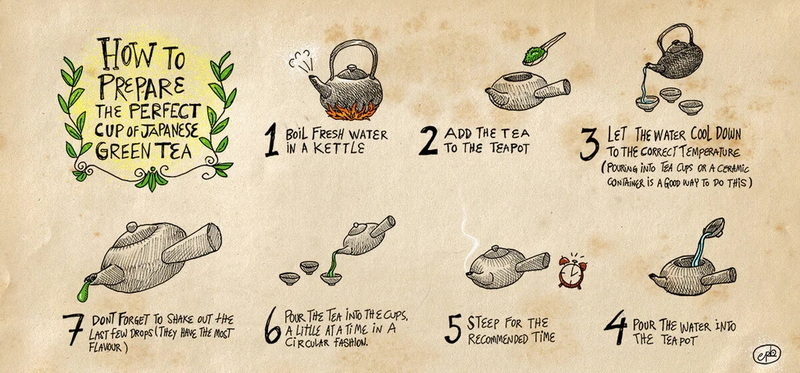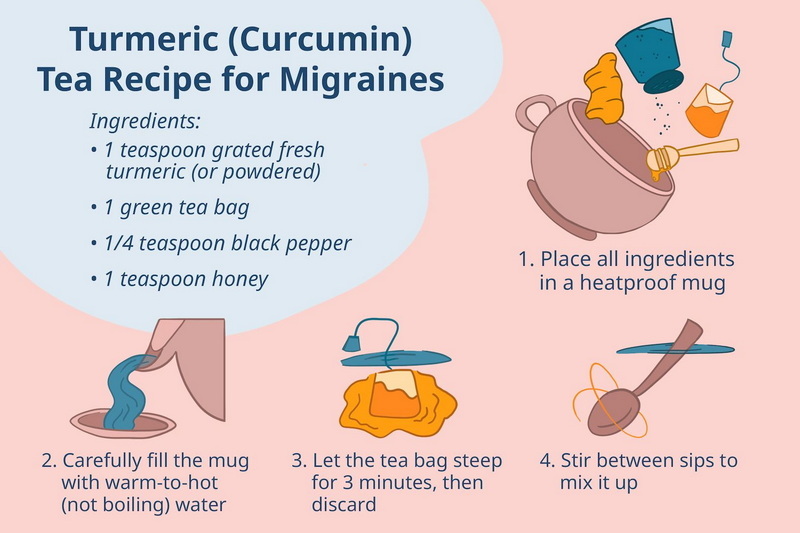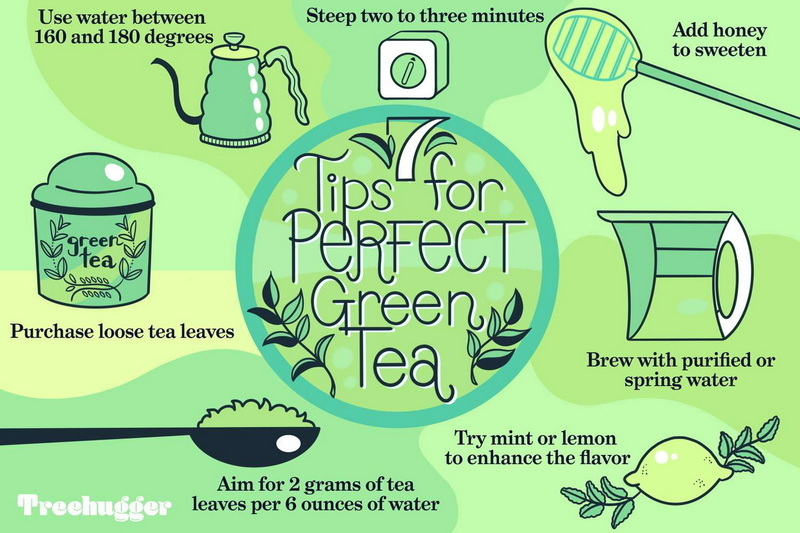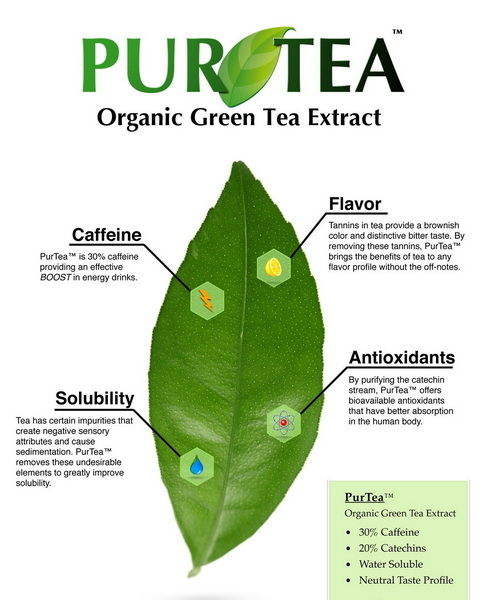Content Menu
● What is Green Tea Extract?
● Health Benefits of Green Tea Extract
● How to Make Your Own Green Tea Extract
>> Method 1: Cold Water Extraction
>> Method 2: Alcohol Extraction
● Using Your Green Tea Extract
>> Delicious Recipes Featuring Green Tea Extract
● Potential Side Effects
● Additional Health Benefits Explained
>> Immune System Support
>> Weight Management
>> Cardiovascular Health
● Culinary Uses Expanded
● Final Thoughts on Safety Measures
● Conclusion
● FAQ
>> 1. How long does homemade green tea extract last?
>> 2. Can I use any type of green tea?
>> 3. Is there a recommended dosage for taking green tea extract?
>> 4. Can I use my leftover tea leaves after making an extract?
>> 5. Are there any specific precautions I should take?
● Citations:
Green tea extract is a concentrated form of green tea that packs a powerful punch of antioxidants and health benefits. Known for its potential to aid weight loss, improve brain function, and reduce the risk of chronic diseases, green tea extract has gained popularity in recent years. While you can easily purchase it from stores, making your own green tea extract at home is not only cost-effective but also allows you to control the quality of the ingredients used. This article will guide you through the process of making your own green tea extract, discuss its benefits, and answer some frequently asked questions.

What is Green Tea Extract?
Green tea extract is derived from the leaves of the *Camellia sinensis* plant and is rich in polyphenols, particularly catechins. The most notable catechin is epigallocatechin gallate (EGCG), which is credited with many of green tea's health benefits. Unlike regular green tea, which is brewed with water, green tea extract is a concentrated form that can be used in various applications, including dietary supplements, skincare products, and culinary uses.
Health Benefits of Green Tea Extract
Before diving into how to make your own green tea extract, it's essential to understand why you might want to do so. Here are some notable health benefits:
- Antioxidant Properties: Green tea extract is loaded with antioxidants that combat oxidative stress and free radicals in the body.
- Weight Loss Support: Several studies suggest that green tea extract can boost metabolism and aid in fat burning.
- Heart Health: Regular consumption may lower cholesterol levels and improve overall heart health.
- Brain Function: Compounds in green tea can enhance cognitive function and may reduce the risk of neurodegenerative diseases.
- Cancer Prevention: Some research indicates that the antioxidants in green tea may help protect against certain types of cancer.
- Immune System Support: Green tea contains compounds that may bolster the immune system and help fend off illnesses[1].

How to Make Your Own Green Tea Extract
Making your own green tea extract at home is straightforward. Below are two popular methods: cold water extraction and alcohol extraction.
Method 1: Cold Water Extraction
This method preserves the delicate flavors and nutrients of the green tea.
Ingredients Needed:
- 3.5 oz (about 7 tablespoons) loose-leaf green tea or high-quality green tea bags
- 4 cups mineral water (still)
- A container with a lid
- Cheesecloth or fine sieve for straining
Instructions:
1. Combine Ingredients: In a large container, mix the loose-leaf green tea with mineral water.
2. Steep: Let the mixture steep at room temperature for about one hour. This gentle extraction method helps retain flavor and nutrients without bitterness.
3. Strain: After steeping, strain the mixture using cheesecloth or a fine sieve into another container.
4. Store: Seal the container with a lid and refrigerate. The extract can be stored for up to a week.
Method 2: Alcohol Extraction
This method yields a more potent extract suitable for various applications.
Ingredients Needed:
- 1 cup dried green tea leaves
- 2 cups high-proof alcohol (like vodka)
- A glass jar with a tight-sealing lid
Instructions:
1. Combine Ingredients: Place dried green tea leaves in a glass jar and pour alcohol over them until fully submerged.
2. Seal and Store: Seal the jar tightly and store it in a dark place for 2 to 4 weeks. Shake it gently every few days.
3. Strain: After the steeping period, strain the liquid through cheesecloth or a fine sieve into another container.
4. Store: Keep your alcohol-based extract in dark glass bottles away from light; it can last for several months.
Using Your Green Tea Extract
Once you have made your own green tea extract, there are numerous ways to incorporate it into your routine:
- Dietary Supplement: Take it as a supplement by adding it to smoothies or juices.
- Skincare Products: Use it as an ingredient in homemade lotions or toners due to its skin-soothing properties.
- Culinary Uses: Add it to recipes for flavor enhancement or health benefits.
Delicious Recipes Featuring Green Tea Extract
To make your experience with green tea more enjoyable, consider incorporating it into various recipes:
- Green Tea Oatmeal:
- Brew a cup of green tea by steeping a bag in boiling water for 3–5 minutes.
- In a pot over medium heat, combine oats with equal parts brewed green tea and milk (or any milk substitute). Cook until thickened.
- Stir in honey and add toppings like fruits or nuts[1].
- Iced Green Tea Lemonade:
- Brew strong green tea and let it cool.
- Mix with fresh lemon juice and sweeten with honey or agave syrup.
- Serve over ice for a refreshing drink on hot days[5].
- Ginger Green Iced Tea:
- Boil water and steep ginger slices along with green tea bags.
- Strain after cooling down, add mint leaves, and serve chilled[7].
Potential Side Effects
While green tea extract has many benefits, it's essential to consume it responsibly:
- High doses can lead to liver toxicity[9].
- It may interact with certain medications (e.g., blood thinners).
- Excessive consumption might cause digestive issues or insomnia due to caffeine content[6].

Additional Health Benefits Explained
Immune System Support
Green tea's immune-boosting properties stem from its high content of catechins like EGCG which have been shown to enhance immune function by modulating immune cell activity[1]. Regular consumption may help reduce the incidence of infections such as colds or flu.
Weight Management
The thermogenic properties of EGCG contribute significantly to weight management by increasing fat oxidation rates during exercise[6]. This makes incorporating green tea extract into your diet particularly appealing if you're looking to manage weight effectively.
Cardiovascular Health
Research indicates that drinking several cups of green tea daily may correlate with improved cardiovascular health due to its ability to lower LDL cholesterol levels while raising HDL cholesterol levels[4]. This balance helps reduce plaque buildup in arteries leading to better overall heart health.
Culinary Uses Expanded
In addition to beverages like iced teas and lattes, consider adding powdered forms of matcha (a type of finely ground green tea) into baked goods such as muffins or pancakes for an added nutritional boost without compromising flavor[7].
Final Thoughts on Safety Measures
While many people enjoy drinking moderate amounts of green tea without issue, those who are sensitive should monitor their intake closely—especially when consuming supplements containing concentrated extracts[10]. Always consult healthcare providers regarding interactions between herbal supplements like these and prescribed medications.
This comprehensive approach not only enriches your understanding but also ensures safe practices when incorporating homemade extracts into your daily routine while enjoying their myriad benefits!
Conclusion
Making your own green tea extract at home is not only feasible but also rewarding. By following simple methods like cold water or alcohol extraction, you can enjoy all the health benefits associated with this powerful ingredient while ensuring quality control over what you consume. Whether you use it as a supplement, in skincare products, or culinary creations, homemade green tea extract offers versatility and health benefits that are hard to beat.

FAQ
1. How long does homemade green tea extract last?
Homemade cold water extracts typically last about one week when refrigerated, while alcohol-based extracts can last several months if stored properly.
2. Can I use any type of green tea?
Yes! However, high-quality loose-leaf teas generally yield better flavor and more health benefits compared to lower-quality bags.
3. Is there a recommended dosage for taking green tea extract?
For general health benefits, around 500 mg per day is often suggested; however, it's best to consult with a healthcare professional before starting any new supplement regimen.
4. Can I use my leftover tea leaves after making an extract?
Absolutely! You can reuse them by steeping them again for a milder flavor or adding them to smoothies or baked goods for added nutrients.
5. Are there any specific precautions I should take?
Yes! If you have liver issues or are taking medications that could interact with caffeine or catechins, consult your doctor before using green tea extracts.
Citations:
[1] https://www.healthline.com/health/immune-boosting-green-tea-used-3-ways
[2] https://www.urmc.rochester.edu/encyclopedia/content?contenttypeid=19&contentid=greenteaextract
[3] https://www.vegrecipesofindia.com/green-tea-green-tea-with-tulsi/
[4] https://www.webmd.com/vitamins/ai/ingredientmono-960/green-tea
[5] https://timesofindia.indiatimes.com/life-style/health-fitness/weight-loss/weight-loss-5-delicious-green-tea-recipes-for-fat-burn/photostory/95687369.cms
[6] https://www.medicalnewstoday.com/articles/269538
[7] https://www.teacurry.com/blogs/tea-recipes/healthy-green-tea-recipes-refreshing-green-tea-drinks
[8] https://www.vumc.org/poison-control/toxicology-question-week/march-12-2021-what-are-adverse-effects-green-tea-extract
[9] https://pmc.ncbi.nlm.nih.gov/articles/PMC3746392/
[10] https://www.nccih.nih.gov/health/green-tea































